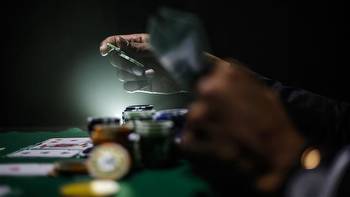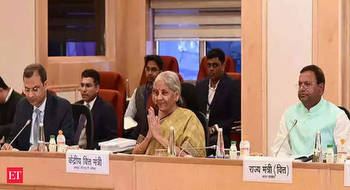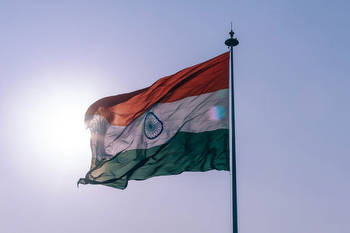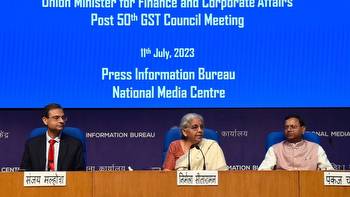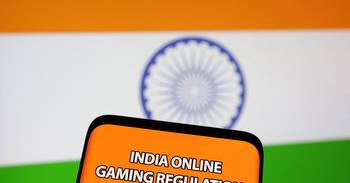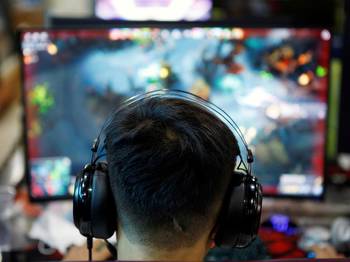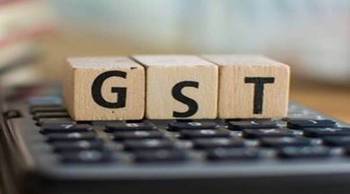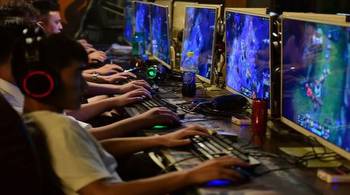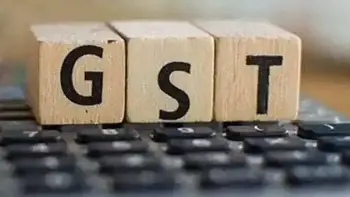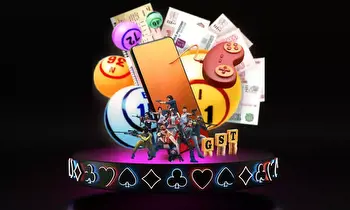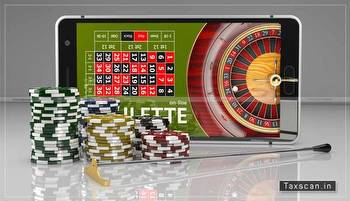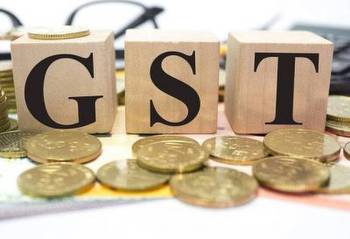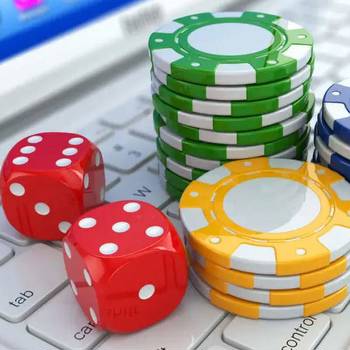Indian Online Gaming Market in Doldrums: 28% GST Could Be Disasterous

The latest announcement of a tax increase by the GST council on the online real money gaming industry has sent shockwaves through businesses like Dream11, MPL, Crickpe, Games24x7, and players in the industry. In fact, the move has apparently jeopardised their future growth plans and their existence.
The GST council, led by the formidable Union Finance Minister Nirmala Sitharaman, has decided to impose a hefty 28% GST on the entire turnover of online real money games, including those involving skills. What adds to the surprise is that this GST will be applied on the full face value of bets placed or the Gross Gaming Revenue (GGR). In other words, it will be levied on the total stake value rather than solely on the platform fee paid.
Under the new tax regulations, the applicable Goods and Services Tax will be applicable on the face value of chips purchased for casinos, the full value of bets placed with bookmakers or totalisators for horse racing, and the full value of bets placed for online gaming. This means that the GST will be calculated on the entire amount of the chips, bets, or wagers made, without any deductions or exclusions.
This approach has raised eyebrows and fueled discussions about the potential impact on the online real-money gaming ecosystem and the overall gaming experience for players.
This new GST changes announcement has triggered an outcry from industry leaders, who argue that such a move will cripple the legitimate online gaming sector, driving players towards illicit offshore platforms that pay no taxes. Not only will this result in a loss of tax revenue and foreign exchange flowing in as an investment, but it will also spell doom for the job market, with countless professionals being left in the lurch.
The GST council says that there should be no differentiation between a ‘game of skill’ and a ‘game of chance’ when it comes to taxation. In their deliberations, the council has decided against treating these two categories differently under the GST regime. This decision implies that both skill-based games and games of chance, such as lottery games, roulette, and most casino games, will be subject to the same tax rates and regulations, emphasizing a standardized approach across the gaming industry.
The imposition of 28% GST on the overall gaming turnover has far-reaching implications that can significantly depress overall tax collections. Let us delve into the intricacies of this matter.
The Contest Entry Amount (CEA) in online real money gaming comprises two components: the table fee or platform fee, and the stake. The platform fee, usually ~10%, is collected by the gaming platform/app hosting the online game. The remaining portion of the CEA forms the stake, which is the cumulative amount contributed by all players in the game.
As the game progresses, the stakes from all players combine to form the total winning amount, which is ultimately awarded to the winner of the game. It is important to note that the winnings, representing the accumulated stake, are subject to income tax at the highest applicable rate.
This setup ensures that the gaming platform receives its platform fee while the remaining stake is distributed among the players, with the winner earning the total winnings. However, now the GST on the entire revenue has come into play.
Let’s understand it in a real-time scenario!
Suppose a player invests Rs 100 in an online gaming activity. The entire amount becomes subject to the 28% GST, rather than just the platform fee of Rs 10. With the 28% GST applied to the entire amount, the player is left with only Rs 72. Even if there are ten players in the game, the player manages to earn a 50% profit on this reduced amount, the profit would amount to just Rs 36. So, the net gain for a player would be just Rs 8. However, as an individual, the player would need to pay income tax on this profit as well, typically ranging from 10% to 30%, with an average rate of 20%. But wait, that’s not all the cost a player will have to bear.
Every online real money gaming platform charges ~10% as the platform fee. In a changed scenario, if real-money gaming platforms decided to charge the platform fee on the net return, it would still make a dent in the net earning.
Therefore, the player would need to allocate a portion of their profit for income tax and platform fees as well, resulting in a net profit of just Rs 5.6. The net return on investment is just 5.4% from investing in a segment which is popularly known for high risk, high reward.
In another scenario where a number of players decide to participate in a pool game – multiple players pool in their money, and the winner takes it all – the net profit still tanks significantly after factoring in the GST on GGR, platform fee and income tax.
This scenario highlights the disappointment players may experience due to the combined impact of GST and Income tax on their gaming activities. The significant reduction in the initial investment and the subsequent taxation on profits can significantly diminish the overall financial gains and dampen players’ enthusiasm.
By taxing a portion of the stake at 28%, the GST Council effectively denies the income tax department the opportunity to tax that portion at the higher income tax rate.
The decrease in winning amounts by 28% may potentially discourage players, leading to a decline in tax collections for both GST and income tax. This decrease in volume could have negative consequences for gaming companies and result in job losses, impacting India’s workforce.
The argument raises questions about the logical inconsistency of the tax treatment. If the logic of taxing turnover is applied to other sectors, it would imply that GST should be levied not only on the brokerage fee in stockbroking but also on the value of stocks traded. Similarly, when a bank processes a loan, GST could be applied to the loan value in addition to the processing fee. Furthermore, if there is no distinction made between games of skill and gambling, and if it is deemed acceptable to tax gambling, the argument suggests considering the legalization of betting on cricket and election outcomes to generate tax revenue.
Last year, the Union Ministry of Finance established a Group of Ministers (GoM) to address GST-related concerns pertaining to online gaming, casinos, and race courses. Led by the chief minister of Meghalaya, the GoM consisted of ministers from seven other states, including Goa, Uttar Pradesh, Tamil Nadu, West Bengal, Telangana, Gujarat, and Maharashtra. The primary objective was to establish a consistent GST rate for different aspects of gaming.
a tax rate of 18% was applied to the commission collected by online real money gaming platforms for games that did not involve betting or gambling. However, the rate was set at 28% for online games that did involve such activities. For horse racing, a GST rate of 28% was imposed on the total bet value.
There was a demand to lower the tax rate to 18% across all gaming activities. However, it became apparent early last year that the central government intended to maintain the rate at 28% to discourage gambling and betting-related games. In November 2022, reports emerged stating that the GoM would submit a report to the GST Council on the matter.
Despite several months of deliberations, most states eventually agreed to the 28% GST rate, with the exception of Goa, which opposed it. Goa proposed a 28% tax on the gross gaming revenue (GGR) of casinos, while recommending an 18% GST on platform fees or service charges imposed by platform operators. With Goa refusing to consent to the 28% GST rate, the GoM requested the GST Council to make the final decision.
The final decision regarding the GST rate was reached after thorough consultations with all states, taking into account the perspectives of each state, including Goa.
Goa, known for its reliance on the casino business to boost tourism, is expected to be significantly impacted by the imposition of the 28% tax rate on real money gaming. The tax burden could potentially deter players and operators from participating in casino activities, resulting in a decline in revenue and a slowdown in the industry’s growth. The negative impact on Goa’s Casino industry has raised concerns about the potential repercussions on tourism and the overall economy of the state.
Invest India reports that the Indian real money gaming industry has successfully attracted a staggering $2.8 billion in investments over the past five years from both domestic and global investors. This impressive figure showcases the tremendous growth and potential of the gaming sector in India, making it an attractive destination for capital infusion and signalling the industry’s significance in the country’s economic landscape.
Ms Shivani Jha, a Tech Policy Lawyer and Director of the EPWA (E-Gamers and Players Welfare Association), expressed her concern regarding the significant development in taxation. She pointed out that the tax increase from 1.8 rupees per 100 rupees spent on a game to a staggering 28 rupees per 100 will have far-reaching consequences. Not only will it discourage players from participating in online gaming, but it will also burden gaming professionals who rely on it as their livelihood.
Ms Jha further warned that these excessive taxes may drive players towards offshore platforms, casting doubt on the entire vision of establishing a progressive digital gaming ecosystem. The future of the industry appears uncertain and unclear under these circumstances.
Adding to the chorus of criticism, Amrit Kiran Singh, Chief Strategy Advisor to the Founders of Gameskraft, described the decision as a self-destructive move that will ultimately spell doom for India’s skilled online games industry. He argues that the decision made by the GST Council is not in the national interest, as it jeopardizes a substantial portion of successful companies within India’s startup ecosystem. The consequences of this decision extend far beyond the gaming industry itself. It undermines the growth potential, viability, and future prospects of the skilled online gaming industry, thereby harming the nation’s overall economic prospects.
According to EconomicTimes, Amrit Kiran Singh also warns that this 28% GST on GGV (gross gaming value) will inadvertently bolster foreign companies while paving the way for the demise of the domestic gaming market, a lamentable consequence that nobody anticipated.
The gaming industry is dominated by the USA and China, with market shares of 23% and 25%, respectively, highlighting their global leadership. Due to the borderless nature of the industry, players and companies have the freedom to operate across international boundaries.
As a result, excessive taxation in India could inadvertently give an advantage to overseas gaming companies. This could lead Indian companies and players to seek opportunities and refuge abroad, potentially resulting in a significant migration of the Indian gaming industry overseas. Such a migration could undermine the country’s ability to compete in this lucrative sector.
Nazara Technologies, a listed player in India’s gaming industry, addressed the impact of the tax in an exchange filing. They reassure stakeholders that the tax will only apply to the skill-based real money gaming segment of their business, which accounted for 5.2% of the company’s overall consolidated revenues for the fiscal year. The company would proactively take measures to mitigate any potential impact on this specific segment, thereby expecting a minimal impact on their overall revenues resulting from the tax implementation.
With 28% GST imposition, the fate of India’s online gaming industry hangs in the balance. Will this decision prove to be the ultimate “Game Over”, or will the industry rally its forces and forge a path to victory? Only time will reveal the final outcome of this epic battle between the GST council and the valiant gaming industry of India.









